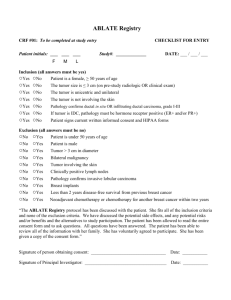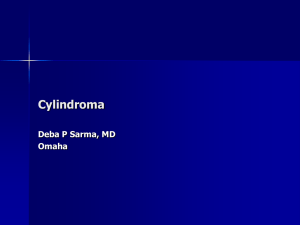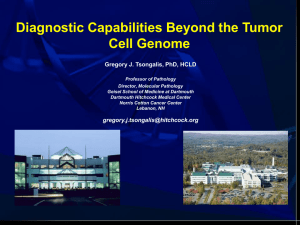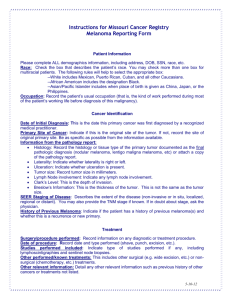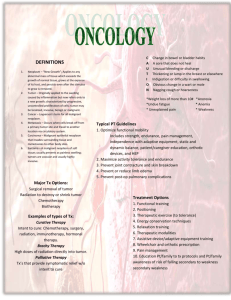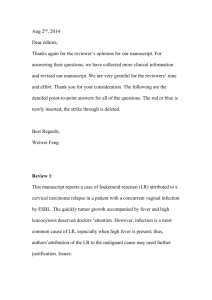Translational Brain Tumor Research Program
advertisement
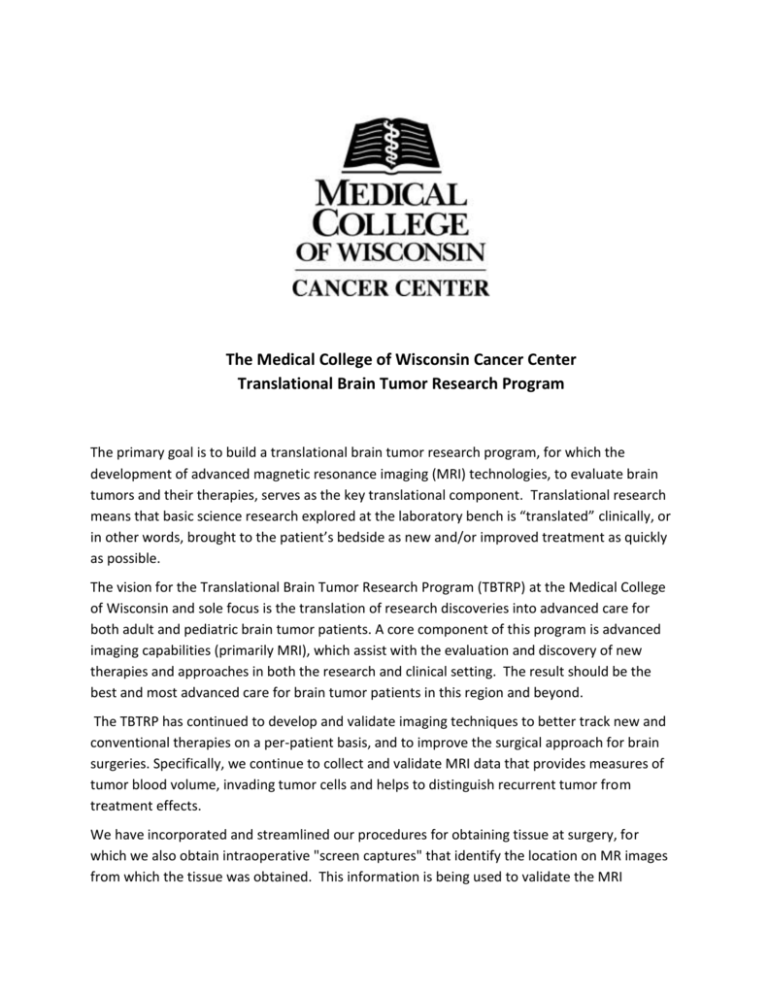
The Medical College of Wisconsin Cancer Center Translational Brain Tumor Research Program The primary goal is to build a translational brain tumor research program, for which the development of advanced magnetic resonance imaging (MRI) technologies, to evaluate brain tumors and their therapies, serves as the key translational component. Translational research means that basic science research explored at the laboratory bench is “translated” clinically, or in other words, brought to the patient’s bedside as new and/or improved treatment as quickly as possible. The vision for the Translational Brain Tumor Research Program (TBTRP) at the Medical College of Wisconsin and sole focus is the translation of research discoveries into advanced care for both adult and pediatric brain tumor patients. A core component of this program is advanced imaging capabilities (primarily MRI), which assist with the evaluation and discovery of new therapies and approaches in both the research and clinical setting. The result should be the best and most advanced care for brain tumor patients in this region and beyond. The TBTRP has continued to develop and validate imaging techniques to better track new and conventional therapies on a per-patient basis, and to improve the surgical approach for brain surgeries. Specifically, we continue to collect and validate MRI data that provides measures of tumor blood volume, invading tumor cells and helps to distinguish recurrent tumor from treatment effects. We have incorporated and streamlined our procedures for obtaining tissue at surgery, for which we also obtain intraoperative "screen captures" that identify the location on MR images from which the tissue was obtained. This information is being used to validate the MRI biomarkers. Tissue that is not needed for diagnosis is then stored in the brain tumor program's tissue bank. This tissue will be used to address future research questions, such as identifying the genomic and proteomic signatures of the different tumor types, with the hope of developing new and more effective therapies. Two post-doctoral fellows have been trained under this program. One has continued as a research scientist in Dr. Kathleen Schmainda's laboratory. The other accepted a faculty position at UCLA but another post-doctdoral fellow has been identified for the work. Due to funding restrictions we were not able to recruit a new faculty member as originally planned. However, we have instead recruited an existing faculty member, Dr. Shama Mirza, an assistant professor in Biochemistry, to focus her research efforts on brain cancer. She will be exploring the proteomic signature of new and recurrent brain tumors. Additional funding from both the NIH and private foundations is being pursued. The progress of the MCW Translational Brain Tumor Research Program in its first three years has been outstanding. Ten scientific journal publications and seven presentations at scientific meetings have resulted. This reinforces that the brain tumor research being done at MCW is unique and outstanding, worthy of other national and international researchers’ attention for their learning and further advancement of brain tumor research. The goal is to learn from each other, collaborate for better answers and move more rapidly toward solving the problem. In addition to brain tumor patients, Medical College of Wisconsin faculty, staff and students from the Departments of Biophysics, Biochemistry, Neurology, Neurosurgery, Radiation Oncology, Radiology as well as Pediatric Radiology and Pediatric Neurosurgery are participating and benefitting from this project, made possible in part by the Chasing Chad Corporation, a private philanthropic organization, funded by many passionate individuals in memory of Mr. Chad Bordwell. We are extremely grateful for their support and motivated to do more. The MCW Translational Brain Tumor Research Program faculty includes but is not limited to: Wade Meuller, MD Mark Malkin, MD Kathleen Schmainda, PhD Jennifer Connelly, MD Shama Mirza, PhD Shekar Kurpad, MD

